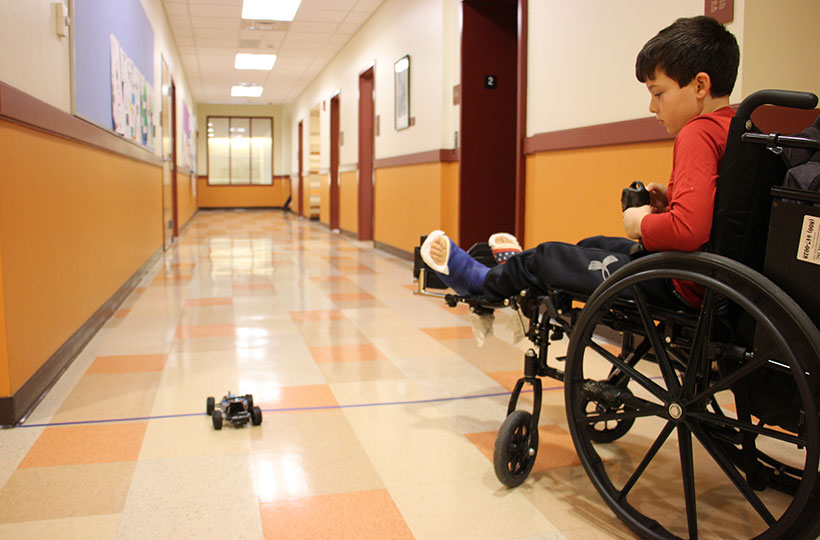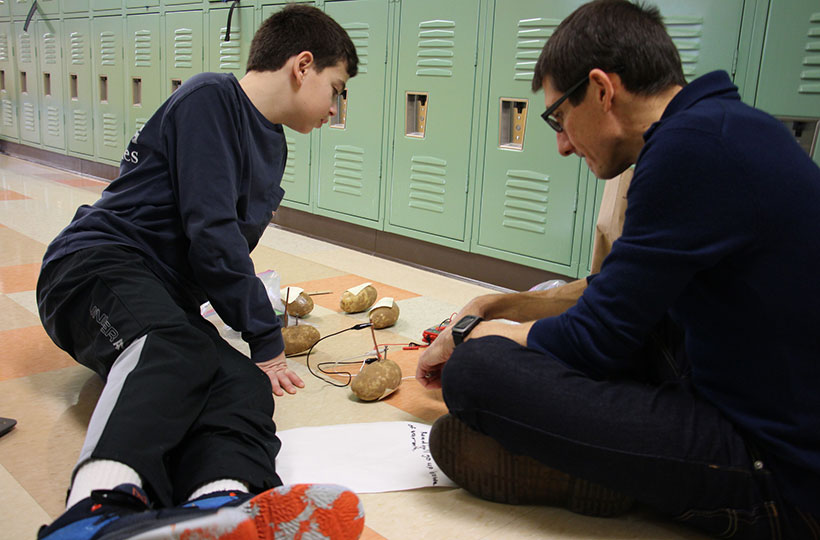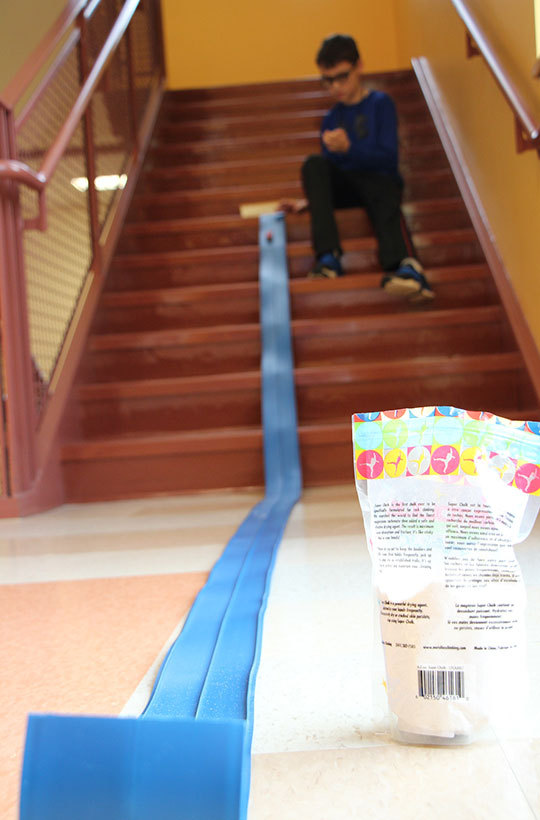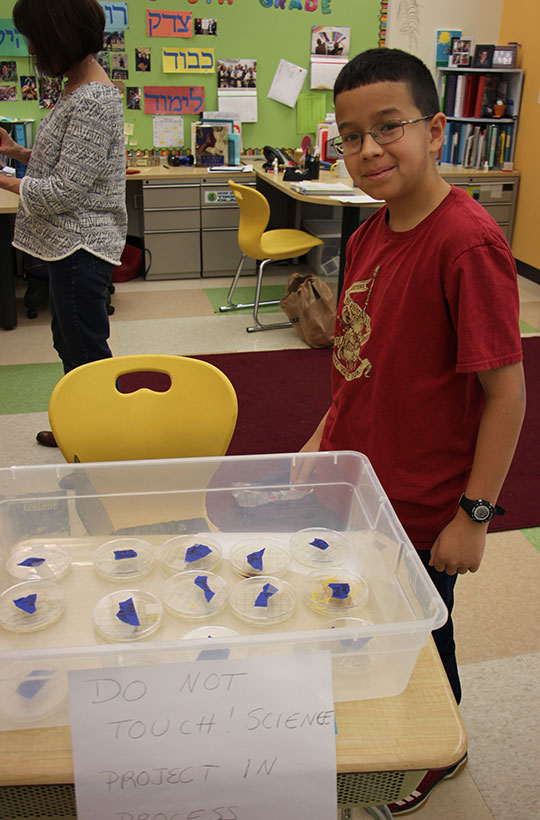The Rashi School’s fifth-grade science fair is a rite of passage for students at the Boston area’s Reform Jewish day school. Each year, fifth-graders design and complete a science experiment whose results are shared with the rest of the Rashi kehillah (community). All of the work for the science fair is done during the school day, meaning parents aren’t around and aren’t responsible for the project. Instead, Rashi’s fifth-graders work with mentors; sometimes past teachers, sometimes parents of other students, and sometimes even alumni volunteers to mentor the young scientists as they follow the scientific method.
As this year’s science fair draws nearer, we asked a few to reflect on their time as a mentor…
Heidi Chapple, Head of Lower School
I have been a science fair mentor for about 12 years. It is always a wonderful experience to work alongside a student who I have known since kindergarten, to hear why they chose their topic, and about their research and experimentation.
Over the years, I have learned about the perfect environment for growing crystals, seen which acids in food decay teeth faster, seen if a Frisbee will go faster due to the size of its radius, and watched the elasticity of slime change by adding soap.
Watching the fifth-grade students experiment, redefine their experiment, and persevere through the trials of the experimentation stages is an amazing experience and one that makes me feel such pride in them and their accomplishments.
Jonah Tobin Rashi ‘15
I came to Rashi in fifth grade so the science fair is one of my first memories of Rashi. The emphasis is on the process, not on the final product. I loved participating as a subject in other projects and researching with other students. Those interactions built lasting friendships and formed ideas about how to collaborate as a team, working towards a long-term goal.
I wanted to be a mentor to help and give back in a small way. I have met and emailed with my mentee, mostly helping him fine-tune details but allowing him to take the lead.
Eran Hollander, Rashi P’22, P’25, P’27
Although my oldest child is a fifth-grader this year, this is my second time serving as a science fair mentor. I remember running into my mentee in the hallway last year, and he was always happy to say hi and share his findings.
I’d love to be involved earlier in the process and assist in the research and thoughts – maybe it’s just me, but I love the experience.
Gustavo Mostoslavsky, Rashi P’19, P’22
This is my second year as a mentor for the science fair. I was first a mentor to my son when he was in fifth grade, and now I am a mentor for my daughter. It has been a great experience. I am always amazed by the commitment of the students to their projects.
I was so impressed by my daughter’s thought process while we were brainstorming her experiment. She decided to change some of the parameters of her tests in order to observe a larger impact on her results. This is the type of thinking that I hope every young scientist will use.
Alla Vigdorchik, Rashi P’22, P’27
This is my first time mentoring for the science fair and I’ve really enjoyed collaborating with my mentee. Although the number of times that we’ve met since the science fair kick-off has been few, I felt that discussing their experiment with a mentor has helped students pull their projects together. I often see my mentee around the school: in the hallway at dismissal, after a basketball game. We use these informal interactions to discuss how the project is going. I have really enjoyed collaborating as a mentor.
Deb Berlin, Middle School Science Teacher
As a mentor and as a science teacher, I’m always excited to attend the science fair. I ask a lot of questions about the value and validity of the experiments as I make my way around the room.
I have served as a mentor almost every year that I’ve taught. I appreciate the opportunity to get to know the fifth-graders a little better in advance of teaching them. I think science fairs can be a great way for students to internalize the scientific process and take responsibility for their own learning.
I’m generally impressed with the way the students have synthesized their background research coming into the kick-off. Not only do they have their research noted somewhere, but they retain it and make meaning from what they’ve learned.
This year, my mentee had done a ton of research on bacteria, how to culture bacteria, and how to measure bacteria. These are ideas that are way beyond a fifth-grade level.
Are you interested in becoming a mentor for next year’s science fair? Let us know!





